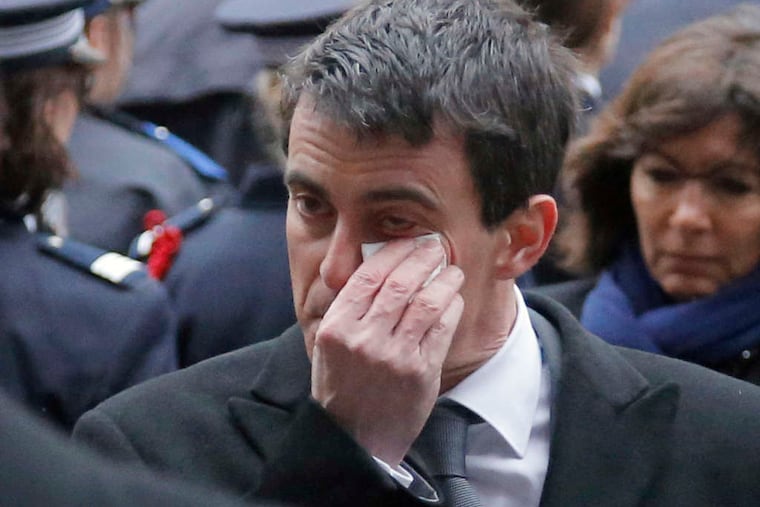France's steps against terror
By David H. Schanzer French Prime Minister Manuel Valls' declaration that France is at war "against terrorism, against jihadism, [and] against radical Islam" will not have much practical impact on the battle against extremist ideologies.

By David H. Schanzer
French Prime Minister Manuel Valls' declaration that France is at war "against terrorism, against jihadism, [and] against radical Islam" will not have much practical impact on the battle against extremist ideologies.
The distinguishing feature of war is the legal use of lethal force against an identifiable enemy. In this respect, France has been on a "war footing," along with the United States, on and off for 13½ years. As early as October 2001, France participated in NATO operations in Afghanistan against al-Qaeda and the Taliban. In 2013, France launched a military operation in Mali against an al-Qaeda affiliate that had overtaken large swaths of the country. And last year, France joined the U.S.-led military engagement against ISIS in Iraq and Syria.
In light of this, it is odd that France is declaring "war" in response to a vicious and brazen, but still quite limited, attack perpetrated by three of its citizens, possibly with support from others in and outside the country.
The key steps France needs to take to address the current threat have everything to do with expanding domestic counterterrorism and little to do with the tools of war.
First, France should revise its laws to clarify that any action taken to support known foreign terrorist organizations - including fighting or training with them - is a crime punishable by a lengthy period of incarceration. In the United States, our "material support for terrorism" law has been an effective tool for incapacitating potential terrorists. The law is only triggered by specific actions taken in furtherance of terrorist organizations. If applied properly, it does not violate civil liberties by punishing people for their ideas.
Expansion of the criminal laws in this way will automatically expand the scope of permissible surveillance against individuals with terrorist connections. When this surveillance uncovers evidence that individuals have taken concrete steps to advance terrorist organizations, France must demonstrate a greater willingness to arrest and prosecute them. A tougher approach to criminal law enforcement will incapacitate some individuals, send a message that these activities will not be tolerated, and, hopefully, deter others. This is the only way to alleviate the immediate threat France is facing from homegrown terrorism and returning foreign fighters.
It is, of course, impossible for France and its allies to arrest their way out of this problem. The biggest challenge facing the community of nations aligned against extremism is to develop a set of policies to reduce the number of individuals attracted to al-Qaeda's noxious ideology. Again, the concept of "war" has nothing to contribute to this task.
While there is always a demand from the public that the government "do something" to address security threats, preventing radicalization is not primarily a job for Western governments. Rather, it is a task that must be taken on by Muslim-majority nations, Muslim civic and religious leaders, and Muslim communities around the globe (with behind-the-scenes support from the West). We took a strong step toward recognizing the need for Muslim leadership on this issue by demanding the participation of Muslim nations in the battle against ISIS. But much remains to be done.
Well over a decade after 9/11, we have barely begun to put in place the type of educational and other programs needed to halt the spread of the ideology that Osama bin Laden has proliferated throughout the Muslim world. Commitments of time, money, and our best minds to figuring out how to do this effectively are needed far more than new declarations of war.
A concerted, global counter-radicalization effort is long overdue. But we must also recognize that no level of funding or programming will stem the creation of more Kourachi brothers without reduced violence in the Mideast (including between Israelis and Palestinians), improved governance in the region, increased economic opportunity for isolated Muslims in the West, and diminished anti-Islamic sentiment. This is a tall order. But if these topics are not on our post-Paris counterterrorism agenda, then our leaders are just blowing smoke.